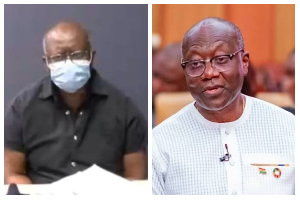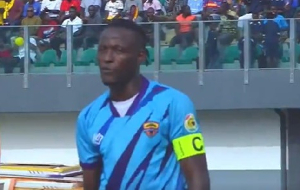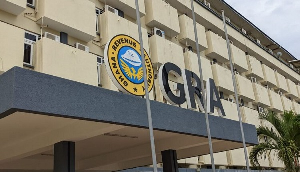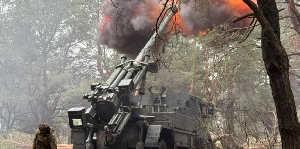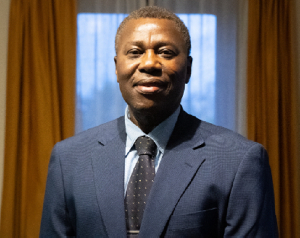The drafters of the 1992 constitution were emphatic when they stated in Article 12 (1) of the said document that the fundamental human right and freedoms enshrined in its chapter 12 shall be respected and upheld by the Executive, Legislature and Judiciary and all other organs of Government and its agencies and, where applicable to them, by all natural and legal persons in Ghana. These inalienable and inherent rights shall be enforced by the courts as provided for in our constitution. This is the very reason why some misconduct on the part of some police officers in so far as human rights are concerned should be condemned in no uncertain terms. There must be rule of law, not rule of men (Police).
SOME REPUTABLE REPORTS
Compelling reports and observations by various review bodies and non-governmental organizations, both domestic and foreign, demonstrate that there is deep public mistrust and lack of faith in the police services. Human Rights violations which have been documented include unnatural death due to excessive police force, arbitrary arrest and detention.The 2002 annual report of the Commission for Human Right and Administrative Justice (CHRAJ) documented complaints of unlawful arrest and inappropriate treatment of citizens in police custody. In condemning the 2002 killing of 4 persons in Taifa by a combined police/military team, the report warned that these security services bear the burden to exercise great restraint in the use of force when combating criminals. The Commonwealth Human Right Initiative in 2005 criticised the Ghanaian Police for routinely detaining persons for more than 48 hours without a warrant, a direct violation of Article 14 (5) of the 1992 Constitution. A similar report in 2005 by the prominent country Review Report for Ghana, concluded by the African Peer Review Mechanism observed that “that the Ghana Police and other security agencies have continued to violate and infringe on the human right of citizens”, and even noted that members of the police and other uniformed agencies admitted that such abuses are committed. Lastly, the influential United State of America Department State Human Right Report 2006 provides a thorough and condemning portrait of Ghanaian Police practices. These include an appalling long list of alleged incidents of police brutality. According to the report, there continued to be credible reports that police beat and abused suspects, prisoners, demonstrators and other citizens. It also identified widespread abuses of the right to be informed of reasons for arrest, the right to a court hearing if detained without charge for more than forty-eight hours. The Police Intelligence and Professional Standards Unit (PIPS) received 247 and 522 complaints of police misconducts in 2005 and 2006 respectively.
STEPS BEING TAKEN WITHIN THE POLICE FORCE
Despite persistent failure to accept these reports in good faith, the police force over the years has taken some commending steps to abate these unseemly developments. Sections 17 and 18 of the Police Services Act, 1970 (Act 350) provides for the discipline of members for specific enumerated infractions, including for actions that “…tend to bring the services into dispute”. The police administration has indicated that it will not shelve or compromise on any misconduct on the part of any personnel or officer who will fall foul against the regulations of the service. In line with these, in 2004, 12 police officers were dismissed from the police service for gross misconduct which included extortion, bribery and abuse of human right including assault. The figure shockingly rose to 49 in 2005, 65 in 2006, and 68 within the first three quarters of this year. These include 10 dismissals in August alone (See: www.ghanaweb.com; General News of Thursday, August 30, 2007.). The Ministry of Interior has commendably also set up a fact-finding committee in the middle of August this year to ascertain the circumstances under which Mr. George Atua, alias George MacLean died barely within 24 hours of his arrest by the police at Suhum.COMPENSATION TO THE VICTIMS
It is not enough to dismiss those officers who might have misconducted themselves in the course of their duty, but more importantly, reasonable compensation should be awarded to persons who might have suffered unlawfully under the hands of those officers. Article 14 (5) of our constitution provides that a person who is unlawfully arrested, restricted or detained by any other person shall be entitled to compensation from that other person. Therefore, some form of reasonable compensation should be afforded, as a matter of law and urgency, to all those who have fallen victims to the aberrant conducts on the part of some police officers.CONCLUSION
The increasingly reports of police brutalities suggest a lack of knowledge by some members of the Ghana Police Service of the standards required of police members under both Ghanaian law and international human right norms. It is therefore reiterated that a critical tool for building meaningful respect for human rights is the momentous, comprehensive, and frequent human right training for police officers. This means that, to reform the police culture that is currently characterized by disregard for some critical aspects of the rule of law and democracy; there should be increased sensitisations in the form of human rights training workshops for both the new recruits and the experienced officers within the police service.



